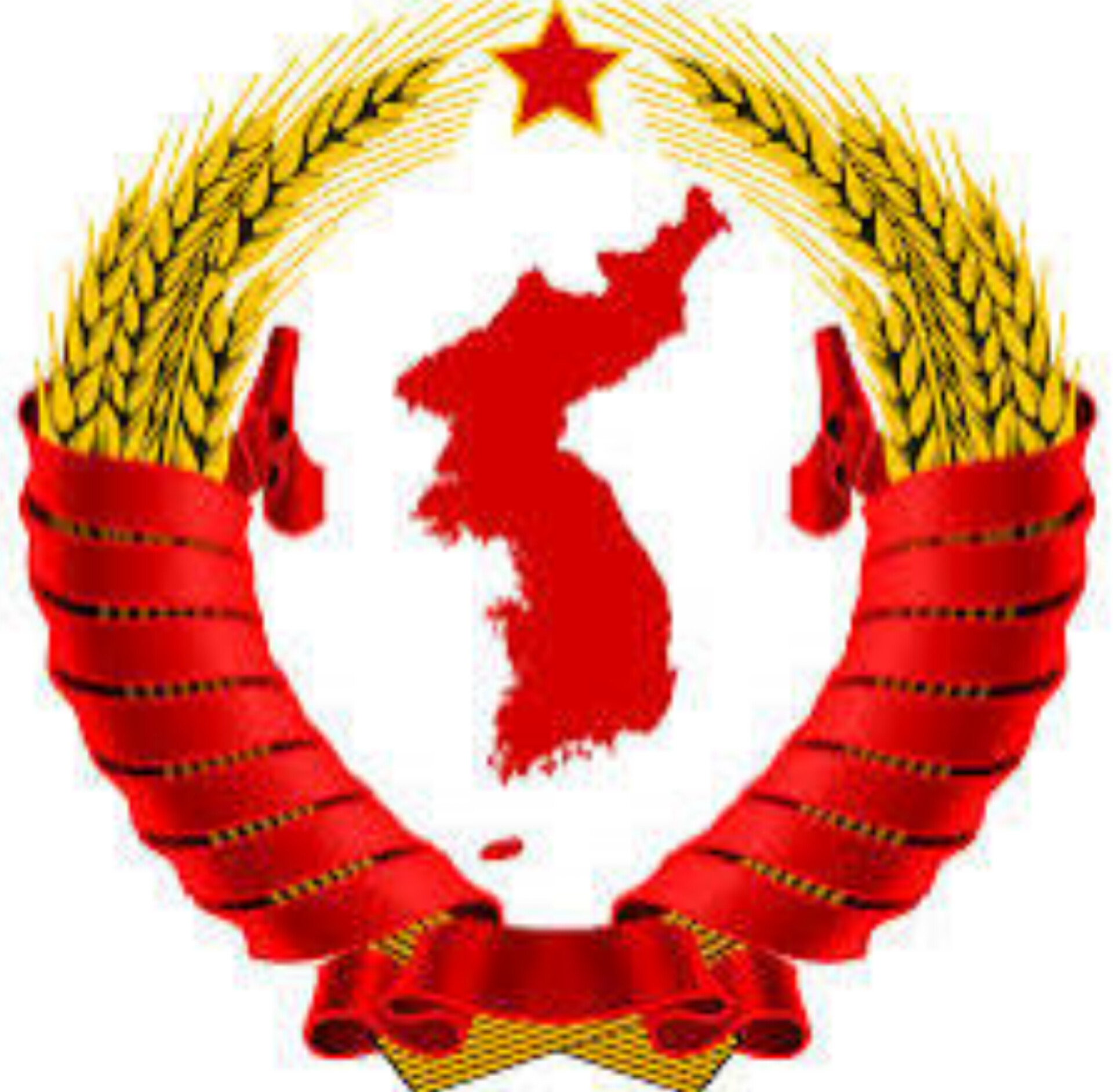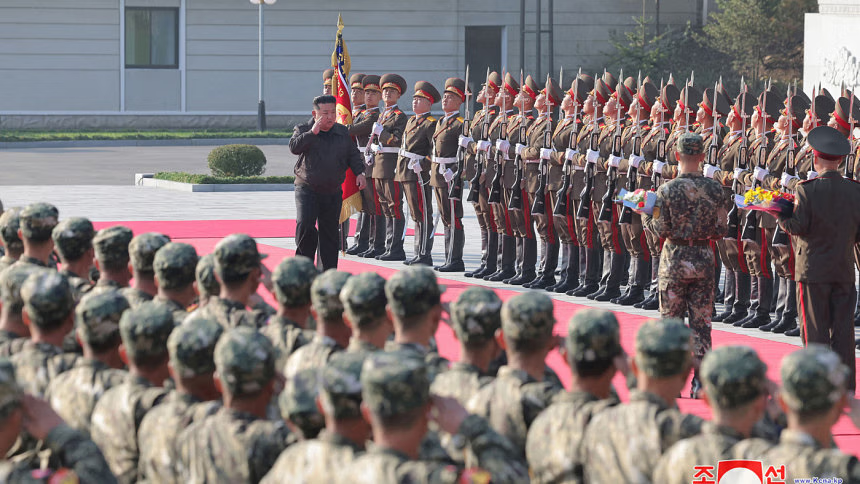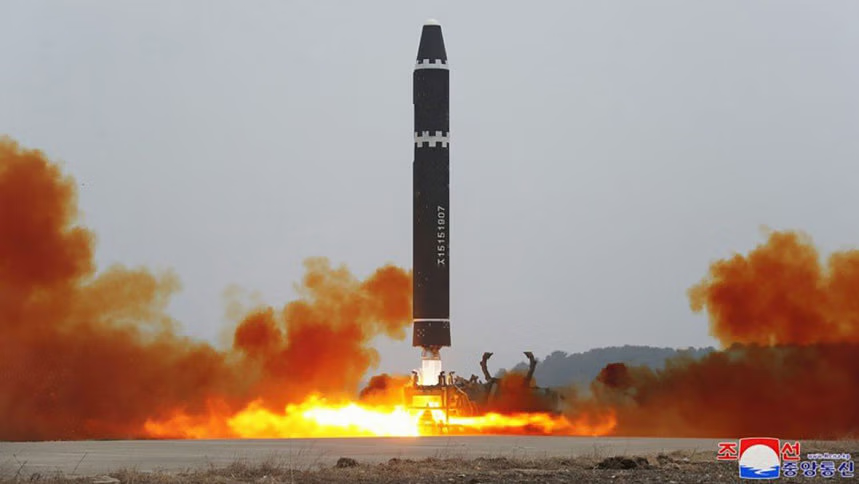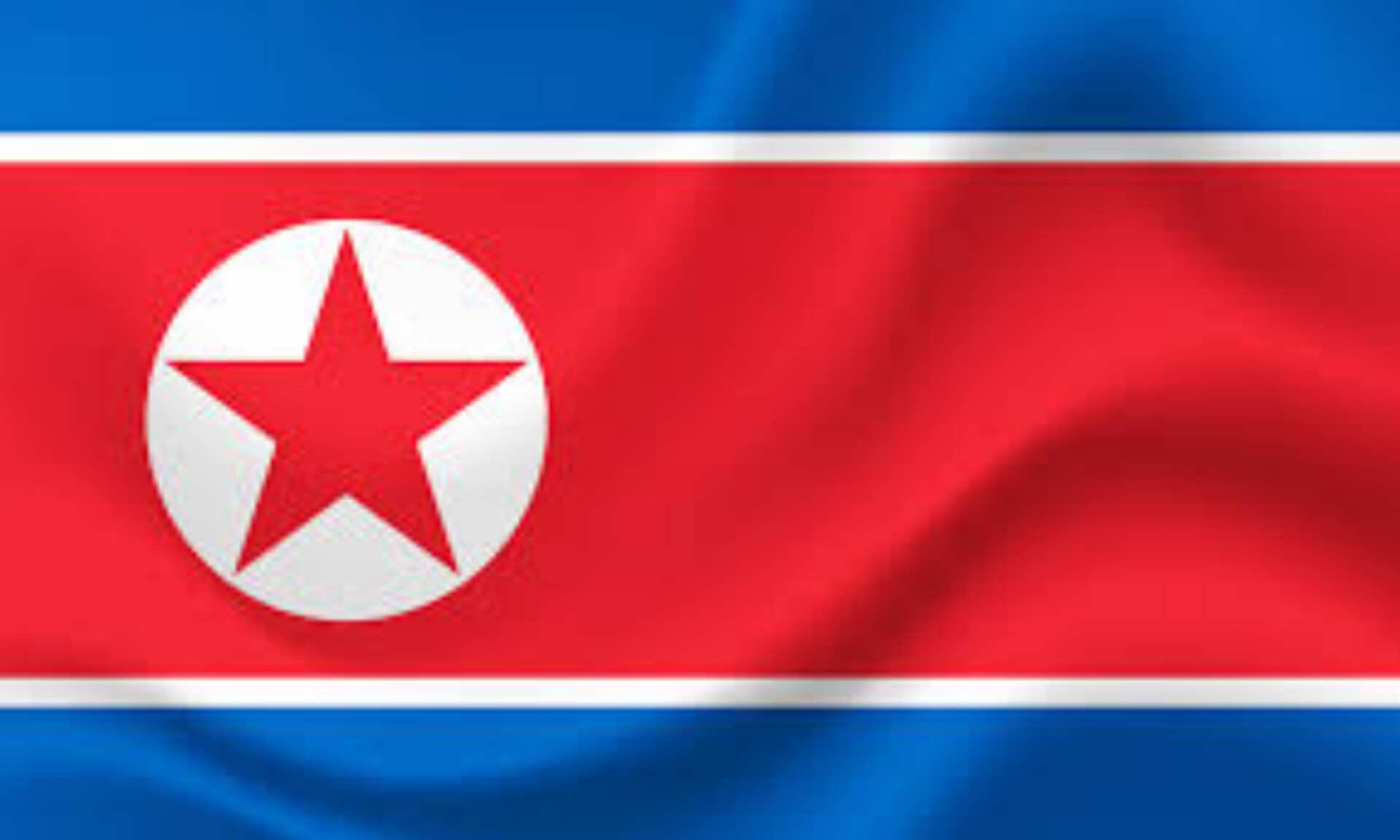Asia
North Korea Through the Lens of East Germany’s Past

***The Korean Peninsula’s Future in German Reunification
Since Germany’s peaceful reunification on October 3, 1990, the concept of “preparation for reunification” has become a significant part of South Korean discourse.
For South Korea, which has long aspired to reunite with the North, Germany’s experience serves as a dual source of shame for not achieving reunification and hope that Korea might follow in Germany’s footsteps.
The post-reunification integration process in Germany demonstrates that achieving reunification is a long-term undertaking that cannot rely solely on economic integration; social and cultural integration are equally vital.
Germany’s integration can broadly be divided into two phases: the first half focused on economic integration, while the second half exposed deeper issues in social and cultural integration, largely due to the incomplete embedding of democracy.
In the aftermath of reunification, over 9 million economically active East Germans faced unemployment, leading to a profound existential crisis. Initially, the urgency of resolving economic issues overshadowed internal conflicts within the newly unified Germany. The reunification, led by West Germany, treated East Germany as an illegal state under the Stasi regime, making it difficult for East Germans to voice their concerns early on.
This suppression led to the build-up of social and cultural conflicts, and as Ralf Dahrendorf predicted in 1990, the transplanted democratic system displayed instability under both internal and external pressures.
The 2024 state elections in Saxony and Thuringia, both part of the former East Germany, revealed significant political shifts. The far-right populist party, Alternative for Germany (AfD), emerged as a major force, becoming the second-largest party in Saxony and the largest in Thuringia.
In Thuringia, the AfD secured over one-third of the seats, allowing it to veto important decisions. Conversely, Die Linke, the successor to East Germany’s Communist Party, faced a dramatic decline, garnering only 4.5% of the vote, threatening its parliamentary presence.
This political transformation in former East Germany suggests a society evolving into something distinct from its past. Perspectives like that of Professor D. Oschmann, who described East Germany as a “West German invention,” persist, framing reunified Germany as a continuous conflict between East and West.
Through its reunification, Germany not only provides South Korea with a vision of potential unification for the Korean Peninsula but also reflects the current reality of division through its own historical experiences.
North Korean leader Kim Jong-un has publicly shifted the narrative regarding inter-Korean relations. During a Central Committee plenary meeting on December 30, 2023, he declared that these relations are now characterized as “a hostilerelationship between two states” rather than between compatriots.
This stance was reinforced during the Supreme People’s Assembly on January 15, 2024, where he asserted that the concepts of “unification” and “compatriots” should be entirely eliminated.
This shift in North Korea’s position mirrors East Germany’s historical response to West Germany’s overtures.
When West German Chancellor Willy Brandt, on October 28, 1969, renounced the claim to sole representation of Germany and effectively recognized East Germany as a state, he emphasized the need to “maintain national unity” for future reunification.
East Germany, in turn, asserted the existence of two separate nations, framing West Germany as a capitalist state and itself as a socialist one.
As South Korea contemplates its path to reunification, the lessons drawn from Germany’s experiences—both the possibilities and the challenges—will be crucial in shaping its future strategy toward the North.
The historical parallels suggest that while economic considerations are essential, understanding the social and cultural dimensions of integration will be key to achieving a harmonious reunification on the Korean Peninsula.
Asia
Global Security Threats from North Koreas Troop Deployment

By YongHan Park
A Senior Researcher of Korea Institute for Defense Analyses(KIDA)
North Korea has been threatening the security order in Northeast Asia with its illegal nuclear weapons development for decades. It also supplied weapons to Russia, which invaded Ukraine, and recently began directly intervening in the war by sending special forces. These deviations by North Korea not only worsen the threat in Europe, but can also lead to increased tension in Northeast Asia. There are various justifications and needs for Northeast Asia and the international community that hopes to maintain peace to stop North Koreas troop deployment and the illegal solidarity between North Korea and Russia.
In early October, it was discovered that North Korean special forces had begun moving to help Russia participate in the war in Ukraine. On the 18th of October, the South Korean government’s National Intelligence Service presented various evidence that North Korean troops had begun preparations for deployment. A few days later, U.S. Secretary of Defense Lloyd Austin also said on the 23rd of October that there was evidence that North Korean troops were in Russia. The following day, on the 24th, the European Union criticized the deployment of North Korean troops as a violation of international law and an act of hostility that would have serious consequences. On the same day, the United Nations also expressed its opposition to additional military forces in Ukraine. North Korea’s level of involvement in the war has continued to deepen. North Korea is simply providing weapons to Russia.
In early August, dozens of North Korean military officials and officers appeared on the battlefield in Ukraine. They visited the KN-23 missile launch site that North Korea provided to Russia. In addition, the possibility and concerns regarding troop deployment have been raised in vairious ways as North Korea and and Russias relationship has deepened. Last June, North Korea and Russia held a meeting in Pyongyang: They held a summit and signed a treaty on strategic partnership. At that time, Article 4 of the treaty provided the basis for military support in response to mutual acts of armed aggression.
North Korea disclosed through its state-run media that Kim Jong-un had observed special warfare training in September. It is presumed that Kim Jong-un conducted an inspection as North Korea began preparing in earnest for troop deployment. In August, Ukraine attacked Kursk on the Russian mainland, creating unfavorable conditions for Russia. This is the background to the presumption that Russia, in a state of desperation, requested troop support from North Korea. Up until now, North Korea has supported Russias illegal invasion by supplying various weapons, including ammunition, to Russia. However, by sending troops and participates directly, the level of ripple effect will also change. It could also have a direct impact on security in Northeast Asia.
Christopher Clarke, a history professor at Cambridge University, pointed out that at that time, there was a pervasive atmosphere of mutual distrust in Europe, and the protagonists of 1914 were sleepwalkers who, with their eyes wide open, could not see, were caught up in a dream and did not realize the true nature of the horror they were about to unleash on the world. in his book Sleepwalkers, which analyzes the outbreak of World War I.
This is the interpretation that the European countries, which prided themselves on being civilized, failed to remain alert and thought ‘Surely not’, which led to a series of conflicts occurring all over the world, which eventually escalated into world war. Therefore, even today, we can obtain a reasonable analysis and lesson that the local conflict that started in Ukraine can escalate into a world war at any time. After the outbreak of the Ukrainian War, there are ongoing conflicts in the Middle East, and concerns persist that military conflicts could occur simultaneously in Taiwan. In this way, we are already a few steps toward a world war. This is the background to UN Secretary-General Antonio Guterres emphasizing on the 3rd of November that the North Korean troops deployment could be a very dangerous escalation and that all measures must be taken to avoid internationalization of the conflict.
Cooperation between North Korea and Russia can form and solidify a confrontational structure among North Korea, China, Russia – South Korea, the US, and Japan. This is a strategy intended by North Korea. This is because it can ultimately work to the advantage of the vulnerable Kim Jong-un regime and the North Korean system. The confrontation between the camps increases North Koreas value to China and Russia, and encourages them to support the regime and system to continue. In particular, Russias support for North Korea can lead to closer ties between North Korea and Russia, and hinder efforts to weaken sanctions against North Korea and denuclearize North Korea. North Koreas advancement of nuclear armament is ultimately worrisome because it can lead the Kim Jong-un regime and the North Korean system to make wrong choices, such as military provocations, or create favorable conditions.
Therefore, we must suppress North Korea’s miscalculation, strengthen multilateral cooperation and solidarity with allies, and reduce the effect of North Korea’s military deployment on the war. The international community must urgently work to stop North Korea-Russia cooperation. Ultimately, efforts must be made to end the Ukraine war as quickly as possible in the right direction. North Koreas intervention will prolong the war, and the continuation of the war will trigger North Korea-Russia cooperation. Efforts are needed to break this vicious cycle of evil d
Asia
Forged in Suffering: North Koreas Nuclear Ambitions and the Price Paid by Its People

Joohyun Moon
(Professor of Energy Engineering in the Department of Dankook University, ROK)
North Korea has recently shocked the international community by reportedly deploying troops to Russia amid the ongoing war in Ukraine. Though the exact scale and role of these soldiers remain unclear, experts suggest that North Korean involvement could significantly impact both the Russia-Ukraine war and the security dynamics on the Korean Peninsula. This deployment highlights the regime’s persistent prioritization of militaristic goals over the well-being of its people, raising critical questions about human rights abuses within North Korea.
North Korea’s troop deployment to Russia appears to be driven by several strategic motives, with the primary goal of solidifying its alliance with Moscow. In June, a “Comprehensive Strategic Partnership Treaty” was signed between North Korea and Russia, ratified by the Russian State Duma in October.
This alliance extends beyond mere diplomatic formalities; North Korea seems to believe that a “blood alliance forged on the battlefield will better secure its future. Kim Jong-un’s administration likely believes that only deep ties with powerful nations like Russia can preserve its regime.
Additionally, Pyongyang’s relentless pursuit of nuclear and missile advancements has long overshadowed the welfare of its people. During the severe famine of the 1990s, known as the “Arduous March,” millions died of starvation while the regime prioritized nuclear development, culminating in its first nuclear test in 2006. Today, the state has achieved miniaturization and standardization of nuclear warheads, yet it continues to seek further advancements. Russia possesses critical technologies in re-entry capabilities for intercontinental ballistic missiles, reconnaissance satellites, and nuclear-powered submarines—all elements North Korea seeks to bolster its military power.
Possessing such technology would enable North Korea to pose a greater threat not only to South Korea but also to other neighbouring countries and even the U.S., further destabilizing the already fragile security landscape in the region. The North Korean regime’s decision to send its soldiers into a foreign war for combat experience marks another dimension of its strategic ambitions. North Korea’s forces, though numbering 1.2 million active-duty personnel, lack real-world battle experience. Engagement in intense warfare could provide its soldiers with valuable combat exposure.
If this deployment is paired with potential technology transfers from Russia, North Korea could significantly enhance its military capabilities, posing an even greater threat to South Korea and neighbouring countries. Financial motives likely play a role in this deployment. While it is not confirmed, each North Korean soldier is reportedly paid around $2,000 per month.
This means that if, as reported by the media, 12,000 soldiers are deployed, the total would amount to $24 million per month—funds that would almost certainly be funnelled to the regime. North Korea’s economy has long struggled under international sanctions, and though this deployment may offer some financial relief, these gains come at a tragic cost. Many young soldiers face a high likelihood of casualties, with former Ukrainian Défense Minister Andriy Zahorodnyuk estimating a 90% casualty rate for similar front-line forces.
For the North Korean regime, sending soldiers to fight in a distant war is a calculated exchange of lives for money, with little regard for individual safety or family consequences. Beneath these moves lies a much darker reality of widespread human rights abuses. Reports indicate that families of soldiers deployed to Russia are being forcibly relocated and isolated, likely to prevent desertion and dissent. Given that North Korea’s fertility rate is estimated between 0.9 and 1.2 as of 2024, it is likely that many of these soldiers are the only children in their family, dispatched into peril without just cause by the regime.
This grim tactic reflects a deeply engrained disregard for human life and familial bonds, raising moral questions that demand international attention. Human rights abuses in North Korea, however, extend far beyond these soldiers and their families. For decades, the North Korean population has endured extreme deprivation and systemic abuse.
Residents in regions near the country’s nuclear test site reportedly suffer from radiation exposure due to leaks and contamination of nearby rivers. This has led to increased health problems and even birth defects, a consequence of unregulated nuclear testing near civilian areas. According to South Korea’s Transitional Justice Working Group, over a million people live within 40 kilometers of the nuclear test site, relying on rivers that carry radioactive materials and compromising their health and livelihoods.
Furthermore, Kim Jong-un’s recent rhetoric surrounding a “two states concept, implying that reunification with South Korea is impossible, suggests an intention to deepen the country’s isolation from its southern neighbour. The recent destruction of inter-Korean transportation links aligns with this agenda. By controlling the flow of information from South Korea, North Korea aims to suppress awareness among its population of their own reality, particularly the stark contrast between North and South Korea. This isolation is enforced not only through physical barriers but also by a brutal system of control that includes public executions. Reports of teenage students being executed merely for watching South Korean videos illustrate that public executions have become routine in North Korea.
The international community must not merely bear witness to these abuses. Concrete actions can and should be taken to address the plight of North Koreans.
A stronger, united front of international pressure is crucial to compel the North Korean regime to improve the human rights situation for its people. This could include expanding existing sanctions, particularly those targeting the regime’s financial sources that fund its military programs. An increased focus on human rights abuses in North Korea in international forums, such as the United Nations, can help elevate awareness and mobilize diplomatic efforts.
Countries with diplomatic ties to North Korea should leverage their influence to push for greater transparency in Pyongyang’s human rights record. Humanitarian aid, when provided, should be carefully monitored to ensure it reaches those in need rather than the regime. Moreover, international media must continue to expose the North Korean regime’s oppressive practices to keep the global community informed and engaged.
Ultimately, creating lasting change in North Korea requires consistent, collective pressure. The world must not only monitor the regime’s future outward actions but also remain vigilant about ongoing abuses that threaten the lives and dignity of ordinary North Koreans. By shining a light on these hidden atrocities and urging action, the international community can play a pivotal role in advocating for the rights of the North Korean people. (The End]
Asia
North Korea’s Role in Russian War Crimes: A Case for ICC Referral

A representative of the NGO, North Korean Human Rights, has called for the International Criminal Court (ICC) to hold North Korea accountable for its involvement in supplying weapons to Russia, which have been used in the ongoing war against Ukraine.
On June 19, 2024, North Korean leader Kim Jong-un welcomed Russian President Vladimir Putin to Pyongyang in a high-profile visit, despite Russia being deeply embroiled in the conflict with Ukraine.
The summit resulted in the signing of a “Comprehensive Strategic Partnership Agreement,” which committed both nations to mutual military assistance in the event of an invasion.
This agreement, alongside reported shipments of artillery shells and other weapons from North Korea to Russia, raises serious concerns about both nations’ violations of international law and United Nations (UN) sanctions.
According to the South Korean Ministry of National Defense, North Korea has shipped an estimated 12,000 containers of artillery shells to Russia since August 2023.
These weapons have reportedly been used in Russian attacks against Ukrainian civilians, in direct violation of the Geneva Conventions and other international treaties governing the conduct of war.
The ICC has jurisdiction over war crimes, including those outlined under Article 8(2)(a) of the Rome Statute, such as willful killing and the targeting of civilians.
North Korea’s complicity in aiding Russia through the provision of artillery shells and ballistic missiles could constitute a violation of Article 25(3)(c) of the ICC Statute, which addresses aiding and abetting war crimes.
Reports indicate that North Korean missiles were used in multiple strikes on Ukrainian cities, causing significant civilian casualties.
The ICC has already issued arrest warrants for key Russian officials, including President Putin, for war crimes.
As North Korean weapons continue to contribute to these atrocities, the international community is calling for a similar ICC referral for Kim Jong-un.
This case highlights the need for increased diplomatic and psychological pressure on both Russia and North Korea to halt the unlawful attacks and prevent further civilian harm.
-

 Crime1 year ago
Crime1 year agoPolice nabs Killer of Varsity Lecturer in Niger
-

 News10 months ago
News10 months agoFCT-IRS tells socialite Aisha Achimugu not to forget to file her annual returns
-

 Appointment1 year ago
Appointment1 year agoTinubu names El-Rufai, Tope Fasua, others in New appointments
-

 News From Kogi1 year ago
News From Kogi1 year agoINEC cancells election in 67 polling units in Ogori-Magongo in Kogi
-

 News From Kogi1 year ago
News From Kogi1 year agoEchocho Challenges Tribunal Judgment ordering rerun in 94 polling units
-

 News1 year ago
News1 year agoIPOB: Simon Ekpa gives reason for seperatists clamour for Biafra
-

 Metro8 months ago
Metro8 months ago‘Listing Simon Ekpa among wanted persons by Nigeria military is rascality, intimidation’
-

 News11 months ago
News11 months agoKingmakers of Igu/ Koton-Karfe dare Bello, urge him to reverse deposition of Ohimege-Igu
